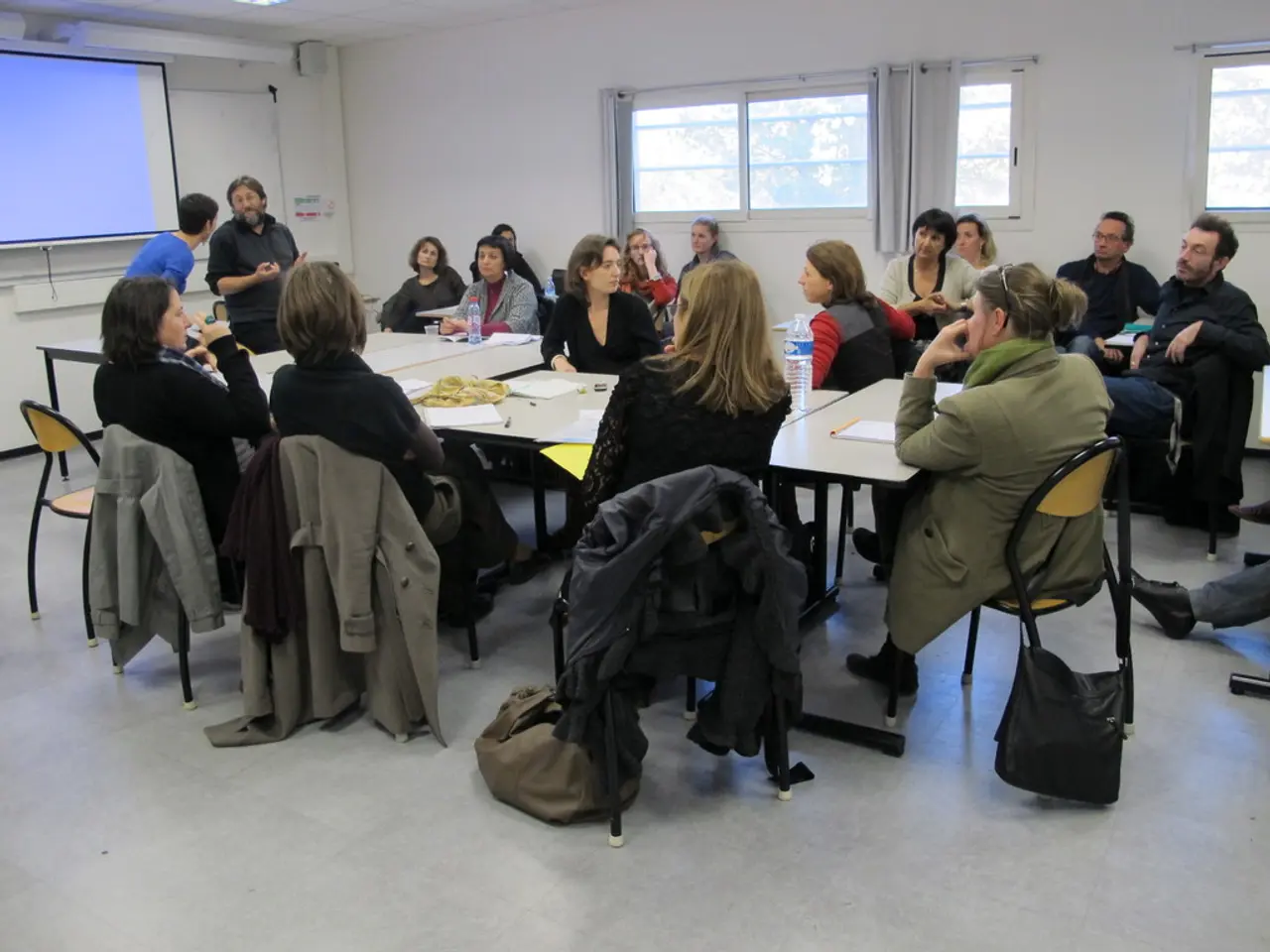"It's clear you disagree with my stance": University education emphasizes critical listening to opposing viewpoints
Promoting Civil Discourse in Colleges: Bridging the Gap and Beyond
In an era marked by political and cultural divisions, colleges and universities across the United States are stepping up to foster civil discourse and promote understanding among students from diverse backgrounds. One such program, Bridging the Gap, has gained significant traction in recent years.
Bellarmine University student Kevine Niyogushima, a sophomore studying communications, shared her transformative experience at a Bridging the Gap retreat. Originally from Tanzania, Niyogushima often finds herself conversing with close friends who share her background due to concerns about her English proficiency and fears of standing out. However, the retreat provided a safe space for her to open up and learn more about herself.
Simon Greer launched Bridging the Gap in 2020, a program designed to bring together students from ideologically diverse campuses and teach them essential skills like listening, giving feedback, sharing their stories, and navigating difficult conversations. The program has since grown into a national initiative, with over 50 colleges and universities participating.
The Kentucky-based program works in partnership with Interfaith America, which merged with Greer's Bridging the Gap in 2022. As part of Interfaith America's existing programs, Bridging the Gap offers structured dialogue and deliberation skills training for students, fostering respectful civic engagement and open inquiry.
Students participating in the Kentucky program gather for weekend retreats and bimonthly virtual sessions with its organizers. They discuss the curriculum, supplemental reading, and documentary films like "American Neighbor" to broaden their perspectives and promote understanding.
However, programs like Bridging the Gap face new scrutiny and backlash due to laws curbing college DEI initiatives and opposition to diversity, equity, and inclusion efforts. Tomarra Adams, Bellarmine University's chief DEI officer, expressed concern about proposed anti-DEI legislation in Kentucky and the general trend of books being banned and curriculum being curtailed.
Despite these challenges, experts believe college campuses are well-positioned to foster civil discourse and start healing those chasms. Colleges and universities are launching diverse programs to promote civil discourse, such as the Constructive Dialogue Institute's partnership with eight liberal arts colleges, James Madison University's "Better Conversations Together," and Arizona Board of Regents universities' efforts to promote free speech and civil discourse.
These programs share a focus on structured dialogue and deliberation skills training for students, faculty development and curricular innovation centered on respectful civic engagement, campus-wide initiatives supporting free expression and inclusive intellectual environments, and creating communities that encourage curiosity, respect for differences, and open inquiry.
Such efforts aim to equip students with the attitudes and skills to engage constructively across racial, religious, cultural, and political divides, as evidenced by a 2020 study from the nonprofit Springtide Research Institute, which found that 81% of people ages 13-25 say it's important to understand both sides of political issues.
In this increasingly divided world, these college programs offer a beacon of hope for constructive dialogue and understanding among students from diverse backgrounds.
- Bridging the Gap, a program designed for promotion of civil discourse and understanding among students from diverse backgrounds, offers education and self-development opportunities, encouraging personal growth through structured dialogue and deliberation skills training, fostering respectful civic engagement and open inquiry.
- Despite the backlash and scrutiny faced by programs like Bridging the Gap due to opposition to diversity, equity, and inclusion efforts, higher education institutions continue to embrace innovation in education, introducing diverse programs that focus on bridging inequalities and fostering constructive dialogue across racial, religious, cultural, and political divides.
- By equipping students with essential skills like listening, giving feedback, sharing stories, and navigating difficult conversations, such college programs play a vital role in reducing educational inequalities and promoting personal growth, essential components of the modern society's struggle towards understanding and unity amidst growing political and cultural divisions.




